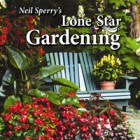Wild About Texas – October, 2007
What’s the first thing you do when you see a bug? Do you brandish a flyswatter, grab the bug spray, or run screaming into the house? Next time, stop and consider this: Insects are tremendously important to the natural world and are essential parts of our daily lives.
What did you have for breakfast? Cereal with strawberries? A glass of orange juice? Do you thank insects for your meals? Most people don’t realize how important insects are to humans. Our society could not exist without them. Insects put food on our tables, clothes on our backs, and can be quite beautiful (some perhaps in an ugly sort of way).
Eighty percent of the food crops you eat depend on insect pollination for their fruit and seed production. That means the apple you had for lunch actually was “made” with the help of an insect. Other products you enjoy, such as honey and silk, also rely on insects.
Insects help in other ways, too. Did you know that bee venom is used to treat arthritis? The same chemicals that make a bee sting hurt also help relieve the pain of this disease. Insects also provide food for many birds, fish, and other animals, including ones we depend on for food. Insects are highly efficient scavengers who clean up dead plant and animal debris and help recycle stored nutrients back into our ecosystem. You might call them nature’s “garbage collectors”! They also work to keep harmful plants and animals in check. Ladybugs, never ones to turn down a good meal, happily dine in gardens infested with aphids.
So, the next time you’re tempted to swat a bug, take a moment to think about the important services insects provide in your life. And put down that swatter!
The Lady Bird Johnson Wildflower Center invites you to journey into the fascinating world of insects as their gardens and natural areas become the habitat for David Rogers’ BIG BUGS, July 29-Nov. 4, 2006. These larger-than-life wood sculptures will set the stage as you learn the roles of these intriguing “little” creatures through fun family activities, special events, guided tours, and gardening classes.
For more information about David Rogers’ BIG BUGS and Texas native plants, visit the Wildflower Center’s Web site at: www.wildflower.org.

